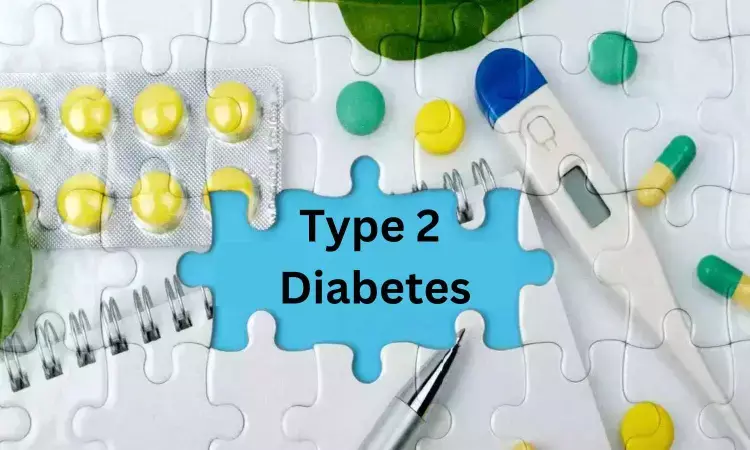- Home
- Medical news & Guidelines
- Anesthesiology
- Cardiology and CTVS
- Critical Care
- Dentistry
- Dermatology
- Diabetes and Endocrinology
- ENT
- Gastroenterology
- Medicine
- Nephrology
- Neurology
- Obstretics-Gynaecology
- Oncology
- Ophthalmology
- Orthopaedics
- Pediatrics-Neonatology
- Psychiatry
- Pulmonology
- Radiology
- Surgery
- Urology
- Laboratory Medicine
- Diet
- Nursing
- Paramedical
- Physiotherapy
- Health news
- Fact Check
- Bone Health Fact Check
- Brain Health Fact Check
- Cancer Related Fact Check
- Child Care Fact Check
- Dental and oral health fact check
- Diabetes and metabolic health fact check
- Diet and Nutrition Fact Check
- Eye and ENT Care Fact Check
- Fitness fact check
- Gut health fact check
- Heart health fact check
- Kidney health fact check
- Medical education fact check
- Men's health fact check
- Respiratory fact check
- Skin and hair care fact check
- Vaccine and Immunization fact check
- Women's health fact check
- AYUSH
- State News
- Andaman and Nicobar Islands
- Andhra Pradesh
- Arunachal Pradesh
- Assam
- Bihar
- Chandigarh
- Chattisgarh
- Dadra and Nagar Haveli
- Daman and Diu
- Delhi
- Goa
- Gujarat
- Haryana
- Himachal Pradesh
- Jammu & Kashmir
- Jharkhand
- Karnataka
- Kerala
- Ladakh
- Lakshadweep
- Madhya Pradesh
- Maharashtra
- Manipur
- Meghalaya
- Mizoram
- Nagaland
- Odisha
- Puducherry
- Punjab
- Rajasthan
- Sikkim
- Tamil Nadu
- Telangana
- Tripura
- Uttar Pradesh
- Uttrakhand
- West Bengal
- Medical Education
- Industry
Type 2 diabetes: Combo of semaglutide and cagrilintide reduces blood sugar and leads to weight loss

USA: Co-administration of once-weekly cagrilintide 2·4 mg with once-weekly semaglutide 2·4 mg (CagriSema) improves glycemic control and leads to weight loss in type 2 diabetes patients, a randomized phase II trial has shown. The findings were published in The Lancet June 23, 2023.
"At 32 weeks, patients treated with CagriSema had an HbA1c reduction of 2.2% versus reductions (1.8%) seen with semaglutide alone and ith cagrilintide alone (0.9%)," Juan P Frias, Velocity Clinical Research, Los Angeles, CA, USA, and colleagues reported during the 2023 Scientific Sessions of the American Diabetes Association (ADA).
The 32-week, multicentre, double-masked, phase 2 trial also showed a more significant mean change in HbA1c (glycated haemoglobin) with CagriSema versus cagrilintide but not versus semaglutide.
Combining semaglutide, a GLP-1 receptor agonist, and cagrilintide, a long-acting amylin analogue, has weight-loss benefits; however, the impact on HbA1c is unknown. To fill this knowledge gap, Frias and the team evaluated the safety and efficacy of co-administered semaglutide with cagrilintide (CagriSema) in patients with type 2 diabetes.
The trial was conducted across 17 sites in the USA and included 92 adults with type 2 diabetes and a BMI of 27 kg/m2 or higher on metformin with or without an SGLT2 inhibitor. They were randomly assigned in the ratio of 1:1:1 to once-weekly subcutaneous CagriSema (n=31), semaglutide (n=31), or cagrilintide (n=30) (all escalated to 2·4 mg). The participants' mean age was 58 years (SD 9).
Randomization was stratified according to SGLT2 inhibitor treatment (yes vs no). The trial participants, sponsor staff, and investigators were masked to treatment assignment throughout the trial.
Change from baseline in HbA1c was noted (primary endpoint). Secondary endpoints included continuous glucose monitoring (CGM) parameters, fasting plasma glucose, body weight, and safety. Efficacy analyses were conducted in all participants who had undergone randomization, and safety analyses in all patients who underwent randomization and received at least trial medication's one dose.
The study revealed the following findings:
- The mean change in HbA1c from baseline to week 32 (CagriSema: –2·2 percentage points; semaglutide: –1·8 percentage points; cagrilintide: –0·9 percentage points) was more significant with CagriSema versus cagrilintide (estimated treatment difference –1·3 percentage points), but not versus semaglutide (–0·4 percentage points).
- The mean change in body weight from baseline to week 32 (CagriSema: –15·6%; semaglutide: –5·1%; cagrilintide: –8·1%) was more significant with CagriSema versus both semaglutide and cagrilintide.
- The mean change in fasting plasma glucose from baseline to week 32 (CagriSema: –3·3 mmol/L; semaglutide: –2·5 mmol/L; cagrilintide: –1·7 mmol/L) was more significant with CagriSema versus cagrilintide but not versus semaglutide.
- Time in range (3·9–10·0 mmol/L) was 45·9%, 32·6%, and 56·9% at baseline and 88·9%, 76·2%, and 71·7% at week 32 with CagriSema, semaglutide, and cagrilintide, respectively.
- Adverse events were reported by 68% of participants in the CagriSema group, 71% in the semaglutide group, and 80% in the cagrilintide group.
- Mild or moderate gastrointestinal adverse events were most common; no level 2 or 3 hypoglycaemia was reported.
- No fatal adverse events were reported.
"Our findings showed that treatment with CagriSema led to clinically relevant improvements in glycaemic control (including CGM parameters) in patients with type 2 diabetes," the researchers wrote. "There was a greater mean change in HbA1c with CagriSema, but not versus semaglutide. CagriSema treatment was well tolerated and resulted in significantly greater weight loss versus semaglutide and cagrilintide."
"These data support further investigation of CagriSema in this population in longer and larger phase 3 studies," they concluded.
Reference:
Frias JP, Deenadayalan S, Erichsen L, Knop FK, Lingvay I, Macura S, Mathieu C, Pedersen SD, Davies M. Efficacy and safety of co-administered once-weekly cagrilintide 2·4 mg with once-weekly semaglutide 2·4 mg in type 2 diabetes: a multicentre, randomized, double-blind, active-controlled, phase 2 trial. Lancet. 2023 Jun 23:S0140-6736(23)01163-7. doi: 10.1016/S0140-6736(23)01163-7. Epub ahead of print. PMID: 37364590.
Dr Kamal Kant Kohli-MBBS, DTCD- a chest specialist with more than 30 years of practice and a flair for writing clinical articles, Dr Kamal Kant Kohli joined Medical Dialogues as a Chief Editor of Medical News. Besides writing articles, as an editor, he proofreads and verifies all the medical content published on Medical Dialogues including those coming from journals, studies,medical conferences,guidelines etc. Email: drkohli@medicaldialogues.in. Contact no. 011-43720751


